The Olympic Motto: Faster, Higher, Stronger?
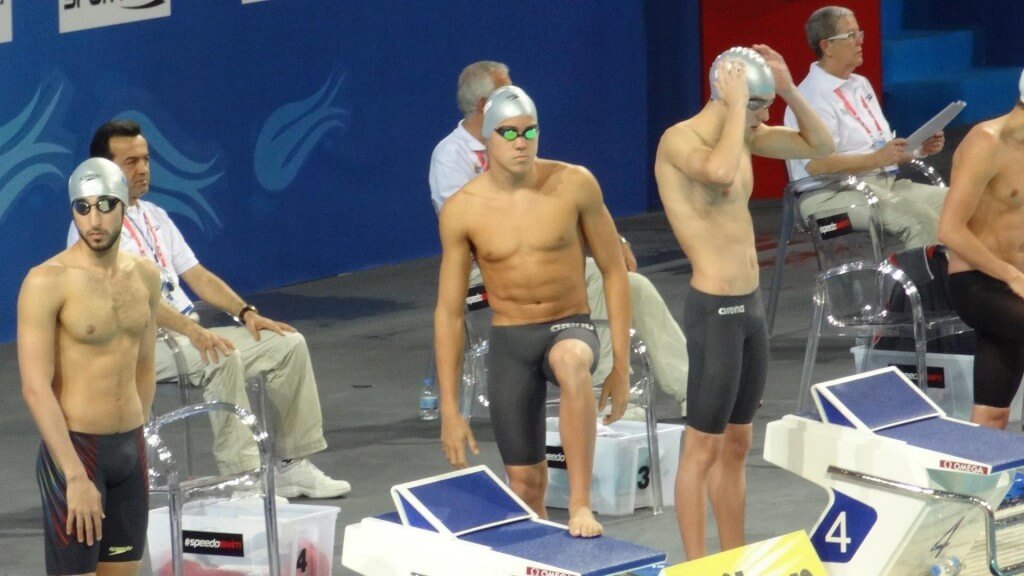
By Seren Jones, Swimming World College Intern
The controversy about the purpose of the world’s largest sporting events, such as the Olympic Games and the FINA World Championships, remains to be an ongoing, unofficial debate.
For many, such games are about the best athletes in the world converging to compete against one another, hence the historic Olympic motto, “Faster, Higher, Stronger.” Thus the rules to qualify are simple: earn the meet’s A cut time designated by FINA, and/or a top two national ranking, and you’re almost guaranteed to represent your homeland on the world stage.
But with younger, less experienced athletes attending these games every year, the foundation of the world’s fastest meets is arguably changing. At this year’s FINA World Championships, at only 10 years of age, Bahrain’s Alzain Tareq became the youngest ever competitor to attend the meet.
So what about the swimmers who are eligible to qualify for the games without getting the A cuts? Those swimmers from minority nations who compete in world events, and in doing so, inspire others in their homeland to follow.
Thus are the games all about being “Faster, Higher, Stronger,” or about athletes of different nations, who share common goals, coming together?
Jordy Groters experiences this debate first hand.
Meet Jordy Groters
Jordy Groters is entering his sophomore year at the University of Missouri and already has far more swimming experience than his fellow teammates.
“I became a member of Aruba’s national junior team at the age of 11 when I first represented Aruba at the CARIFTA (Caribbean Free Trade Association) Swimming Championships in 2008,” said Groters. “I have been representing Aruba at international age group meets from 2008 to 2014 at CARIFTA, CISC (Caribbean Island Swimming Championships), CCCAN (Central American and Caribbean Championships) and CONSANAT (South American Championships).”
Having been a member of the senior Aruban team since the age of 13, Groters has continued to represent his homeland at major international meets to date, and has claimed five national records in doing so: the 50 breast (28.64), 100 breast (1:03.66) and 200 breast (2:18.55), as well as the 200 IM (2:09.35) and 400 IM (4:39.83).
However, the Aruba-born athlete, who moved to Florida after his freshman year of high school, hopes to witness his 16-year-old brother, Patrick, break his IM records at this year’s World Junior Swimming Championships in Singapore– a move than can only better the standard of the nation’s sport.
“In the last 15 years Aruban Swimming has transformed completely from not even being able to medal or make finals at the Caribbean meets like CARIFTA, CISC, or CCCAN to not only medaling, but also setting meet records,” said Groters, who recently returned to Florida from his third World Championships in Kazan.
The Mizzou Tiger gives credit to Head Coach Ismael Santiesteban, who built the Aruba Swimming program from the ground up. However, Groters fears that Aruban junior/age group swimming will hit a standstill in the upcoming years due to the very few swimmers on the island.
“At a typical meet, we barely have more than 100 swimmers,” Groters said. “It’s only logical that these swimmers aren’t as talented, motivated, or simply put, fast enough to compete internationally. I hope that the coaches in Aruba and the swimming federation itself will try to raise more awareness for the sport so that more children will choose to join.”
Although Aruban swimming is progressing, with some members committing to move abroad and swim in college, more could be done to advance the nation’s standing in the pool.
“Aruba is sending seven swimmers to the World Junior Swimming Championships this month,” Groters said. “That number is huge when compared with the two who went to that same meet in 2013. I can imagine that this is going to be the toughest meet of their lives so far, and that most might not get a second or third swim. But the point is that we are setting them up for the future. After these swimmers experience the meet and have raced against the fastest juniors in the world, it can only motivate them to become better. I feel that this is the first step to these swimmers becoming elite athletes.”
Jamaica’s Alia Atkinson is a prime example. She competed at her first Olympic Games at 15 (certainly not in the top heats), but she now holds the world record in the 100 breaststroke (SCM). Thus, if motivation and drive to become the best are the outcomes of sending these younger swimmers from countries (where swimming is a minority sport) to these meets, then where is the negative? In a sense, some of the greatest athletes were shaped because of such experiences.
Us Versus Them
“There are many benefits of being able to compete at these big meets, regardless of cuts,” said Groters. “For one, the meet truly would be a ‘World Championship’ event since there is a representative from almost every country. The result of this is that the participants of the meet also become a little more culturally aware of their surroundings,” Groters admitted. “I have been to three World Championships, and each time I’ve learned about countries that I didn’t know existed. I raced against people I would never usually get the chance to and in some occasions, even became friends with them.”
“Another benefit for the ‘non-qualified’ swimmers is that we push ourselves to another level when we’re at these meets. Just being around all the big-shot swimmers and warming up in the same lanes as them and being in the same calling room as them, we push ourselves. Not only do we want to show them that we want to compete with them, but we also show ourselves that we aren’t that far from them. During finals, when all of us are in the stands and watching the pros do their thing, it lights a spark inside of us. Seeing these ordinary people swim these extraordinary times makes us excited to get back into the pool and work even harder. In short, being at these meets motivates us to eventually make our cuts and swim amongst them in semis and maybe even finals.”
But this doesn’t mean that outsiders don’t have a conflicting opinion about Groters’ attendance at such significant meets.
“Training in the US as an international swimmer, I’ve definitely heard opinions from every aspect,” he revealed. “Some people have told me that I’m lucky to be able to go to these meets. Others have said that the only reason I get to go is because nobody on Aruba is fast enough and that I didn’t earn the spot. Kidding or not, that’s the worst kind of thing to hear.”
“Only a few people are genuinely happy for me when I get selected to go to a meet,” he continued. “However, I understand their reaction. The US has a selection meet for Worlds and the Olympics. People think that the way to earn a spot is to get top two at that selection meet. What they are forgetting is that not every country has the capability of putting two swimmers in each event. In the case of Aruba, so far we’ve only had one swimmer ever qualify for Worlds (with an A cut) and that was Allyson Ponson in the 50 free, recently in Kazan.”
Never Say Never
With his eyes on the prize and aiming to qualify for next year’s games in Rio, Groters believes that his experiences at these world-class meets are making him faster, higher and stronger in more ways than one.
“In the end, we can’t forget that the big shots are normal people too,” he said. “A friend of mine once told me, ‘He has two arms, two legs, two eyes, and a nose. And so do I. Who says I can’t beat him?'”




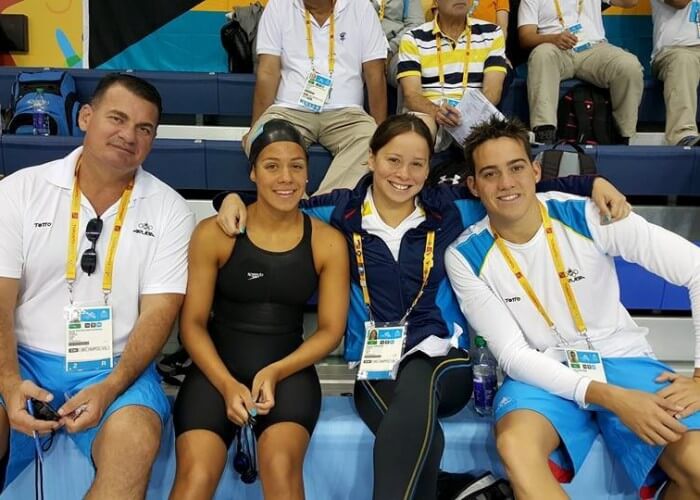
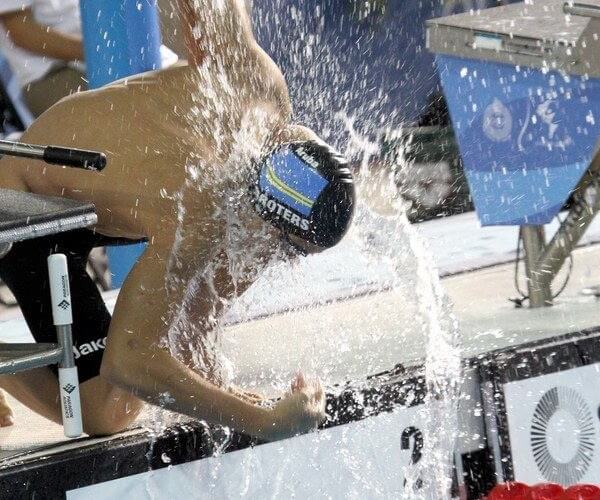
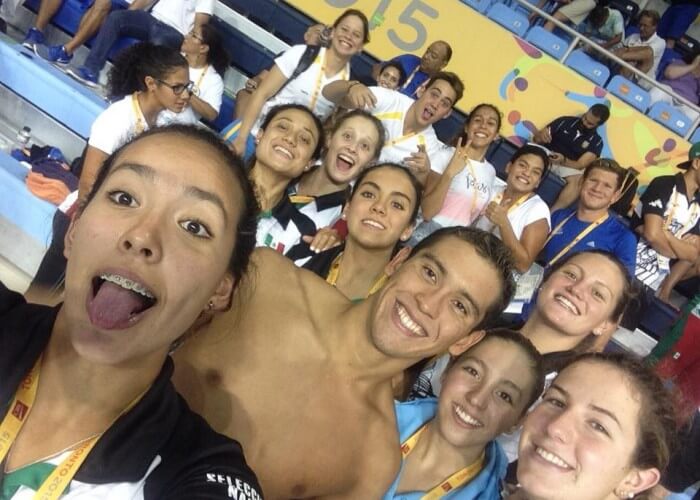
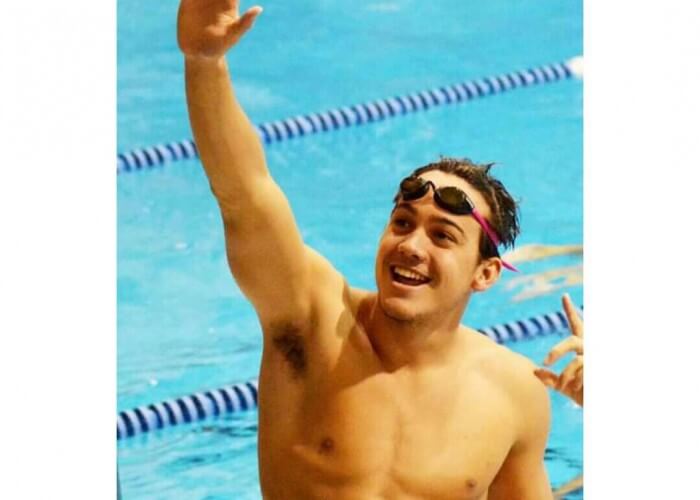
“A friend of mine once told me, ‘He has two arms, two legs, two eyes, and a nose. And so do I. Who says I can’t beat him?’”
That’s the attitude of Olympians and billionaires right there.
Build the sport. Don’t be snobs.
Really…if you’re not fast enough too bad ! Try harder! Olympians work WAY harder than any other athlete out there! They deserve to be where they are!!!! It’s a drive from a very young age. Some people have it, some don’t. I. Don’t usually rant but people are getting
More and more ridiculous by the day!!! Bottom line… Work hard and you will be rewarded for whatever you are trying to achieve!!!!!
It’s all about superior athletes and sportsmanship. ..faster higher stronger. ..absolutely. ..not slower, lower and weaker. ..unless you’re talking about the PC majority who haven’t won anything in their lives and want participation trophies
I have really mixed feelings. I like that every country gets represented, however I think it is ridiculous that for swimming only the top two get to compete in the Olympics. I feel that it was a sneaky move by the IOC when the US boycotted to the Olympics back in the 70’s to change the top 3 to the top 2, thereby eliminating many worthy US athletes. In the words of friends returning from the 84 Los Angeles Olympics, “the meet seemed like a joke in prelims, there were swimmers that my baby sister could beat.” That is really sad. There has to be some middle of the road here. In addition, having recently gone through college recruiting with my daughter, it seems that US universities are giving away US tax dollars to fund scholarships of foreign athletes because these athletes can give them exposure on the international level EVEN THOUGH THEY ARE SLOWER. That is wrong. University of Missouri is a state university. It is not private and therefore I believe that the scholarship money should not be allowed to go to a foreigner. We as a nation need to do a better job of providing for the US athlete, not the foreign athlete. Let their countries take care of them. Especially when we have so many needy, more deserving athletes we could be serving.